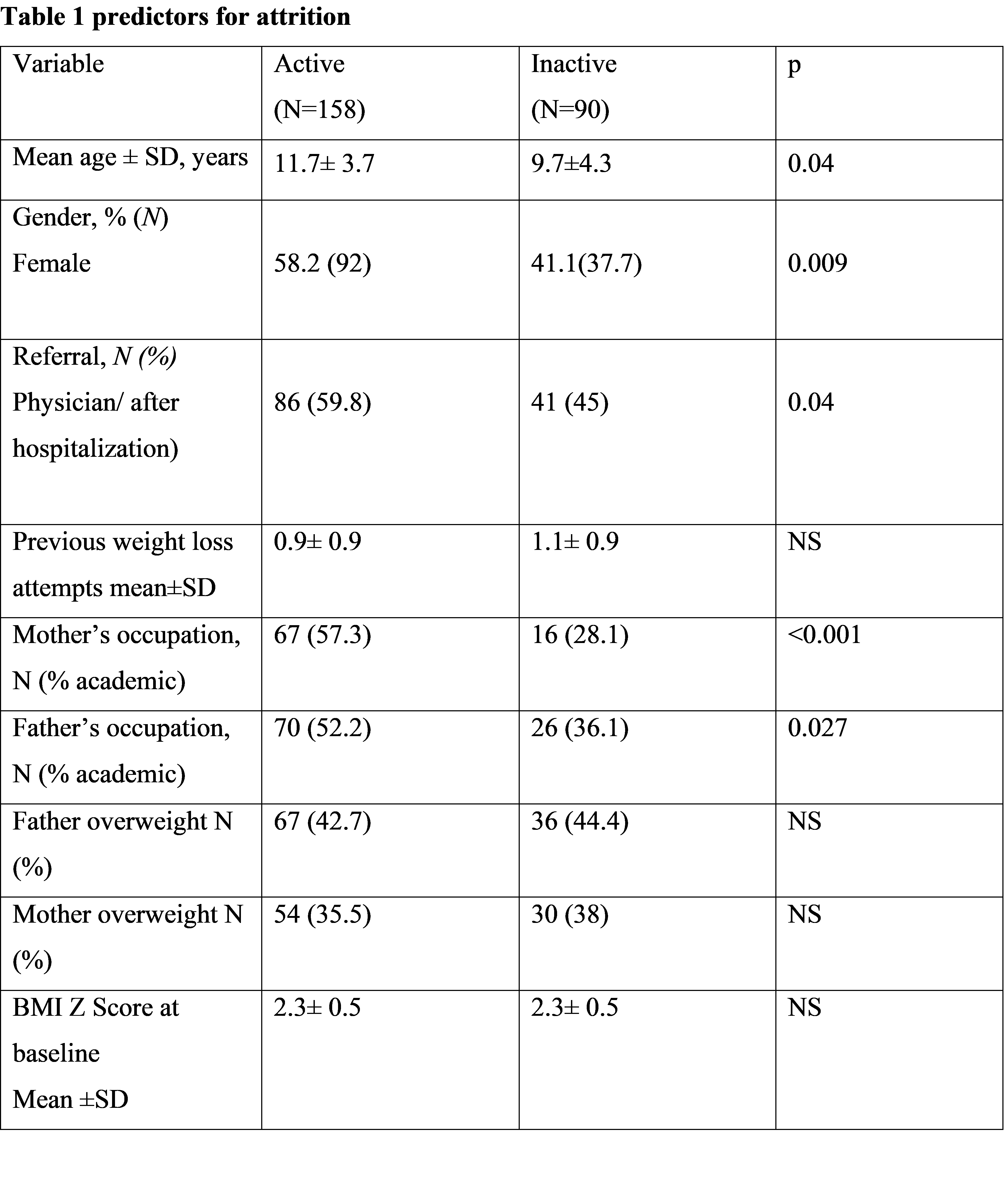
Low Carbohydrate Weight Loss Intervention Program in Obese Children: 5 Years of Experience and Predictors for Attrition
2Department of Pediatric Gastroenterology, Dana Dwek Children's Hospital, ישראל
3Sackler Faculty of Medicine, Tel Aviv University, ישראל
Introduction
Despite the dramatic increase in the incidence of obesity among youth, there is still no consensus on the preferred methodology of treatment. Moreover, only a few studies have investigated attrition from pediatric weight loss management.
The present study aimed to evaluate the effects of an outpatient low-carbohydrate multidisciplinary weight loss intervention in reducing body mass index (BMI) in children and to identify risk factors for attrition.
Methods
This is a prospective and retrospective clinical database study of our low-carbohydrate multidisciplinary program for obese children age 2–18 years. Characteristics of children that attended the clinic regularly ("active") vs. those who dropped-out immediately ("inactive") were compared. Longitudinal data on BMI percentile and Z-score were assessed.
Results
248 patients (52% female, mean age 11.1±3.9, mean BMI 31.1±7, 97.9 percentile) entered our intervention, 37% dropped out. Inactive group children correlated with male gender, younger age, and low parents education level, with no difference at baseline BMI Z-score. Moreover, more children in the active group were referred to the clinic by a physician or after hospitalization (p<0.05,table 1). Overall, 158 children (63%) maintained regular follow-up, the mean number of visits was 8.7±7.9. At the last attended follow-up visit, we observed a reduction in mean BMI Z-score (from 2.3±0.5 to 2.0±0.4). Most patients (80.8%) reduced BMI Z-scores during follow-up.
Conclusion
Low-carbohydrate multidisciplinary intervention is an effective method for long term weight loss among the obese pediatric population. Age, gender, level of parental education and referral type for treatment can predict treatment success.

Powered by Eventact EMS